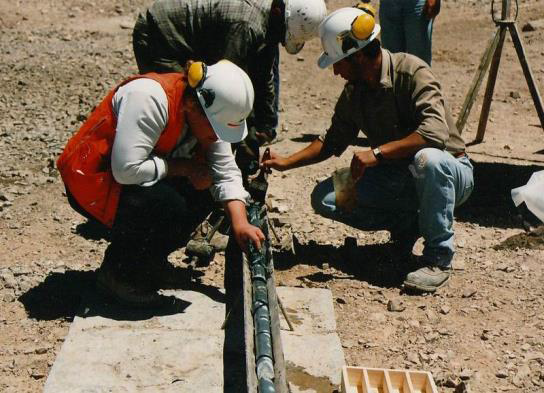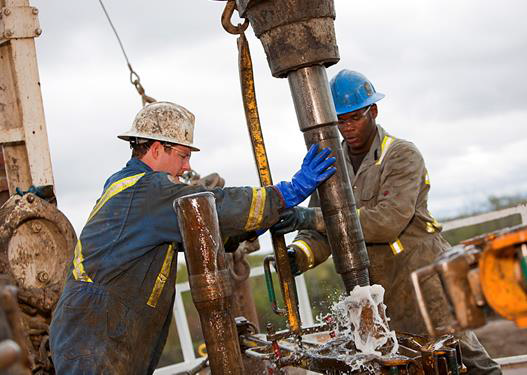COURSE OVERVIEW
DE0444 : MICP and Deterministic Rock Typing

OVERVIEW
| COURSE TITLE | : | DE0444 : MICP and Deterministic Rock Typing |
| COURSE DATE | : | Aug 18 - Aug 22 2024 |
| DURATION | : | 5 Days |
| INSTRUCTOR | : | Mr. Stan Constantino |
| VENUE | : | Abu Dhabi, UAE |
| COURSE FEE | : | $ 8000 |
| Request For Course Outline | ||
OTHER SCHEDULED DATES
| Date | : | Sep 15 - Sep 19 (5 Days) | Location | : | Dubai, UAE | Classroom Fee (US$) | : | $ 8000 | Course Info |
| Date | : | Nov 17 - Nov 21 (5 Days) | Location | : | Dubai, UAE | Classroom Fee (US$) | : | $ 8000 | Course Info |
Course Description
This course is designed to provide participants with a detailed and up-to-date overview of MICP & Deterministic Rock Typing. It covers the basic principles of microbial induced carbonate precipitation and the importance of rock typing in reservoir characterization; the geological settings where MICP can be applied and the rock types involved; the microbial metabolic processes that lead to carbonate precipitation; and the fundamentals of petrophysics and the applications of MICP and rock typing.
Further, the course will also discuss the types of microorganisms involved including their selection and engineering; the detailed study of biochemical reactions leading to carbonate precipitation; the environmental factors affecting MICP covering pH, temperature and other environmental parameters that influence MICP; the techniques for cultivating microorganisms and inducing precipitation in lab settings; and monitoring and measuring MICP and the different deterministic rock typing methods.
During this interactive course, participants will learn the textural and compositional analysis, petrophysical classifications, petrographic microscopy techniques and statistical methods in rock typing; integrating rock typing with seismic and other geophysical data for enhanced reservoir characterization; the challenges and strategies in scaling MICP from lab to field; the computational models used to simulate MICP processes and predict outcomes; the engineering applications of MICP including bioreactor design, economic and sustainability considerations and current research and technological advances; the reservoir modeling using rock typing; the rock typing in carbonate and clastic reservoirs; and the advanced imaging techniques, future trends in rock typing technology and workflow integration and project management.
link to course overview PDF
Further, the course will also discuss the types of microorganisms involved including their selection and engineering; the detailed study of biochemical reactions leading to carbonate precipitation; the environmental factors affecting MICP covering pH, temperature and other environmental parameters that influence MICP; the techniques for cultivating microorganisms and inducing precipitation in lab settings; and monitoring and measuring MICP and the different deterministic rock typing methods.
During this interactive course, participants will learn the textural and compositional analysis, petrophysical classifications, petrographic microscopy techniques and statistical methods in rock typing; integrating rock typing with seismic and other geophysical data for enhanced reservoir characterization; the challenges and strategies in scaling MICP from lab to field; the computational models used to simulate MICP processes and predict outcomes; the engineering applications of MICP including bioreactor design, economic and sustainability considerations and current research and technological advances; the reservoir modeling using rock typing; the rock typing in carbonate and clastic reservoirs; and the advanced imaging techniques, future trends in rock typing technology and workflow integration and project management.
TRAINING METHODOLOGY
This interactive training course includes the following training methodologies as a percentage of the total tuition hours
LecturesWorkshops & Work Presentations
Case Studies & Practical Exercises
Videos, Software & Simulators
In an unlikely event, the course instructor may modify the above training methodology before or during the course for technical reasons.
VIRTUAL TRAINING (IF APPLICABLE)
If this course is delivered online as a Virtual Training, the following limitations will be applicable
| Certificates | : | Only soft copy certificates will be issued to participants through Haward’s Portal. This includes Wallet Card Certificates if applicable |
| Training Materials | : | Only soft copy Training Materials (PDF format) will be issued to participant through the Virtual Training Platform |
| Training Methodology | : | 80% of the program will be theory and 20% will be practical sessions, exercises, case studies, simulators or videos |
| Training Program | : | The training will be for 4 hours per day starting at 09:30 and ending at 13:30 |
| H-STK Smart Training Kit | : | Not Applicable |
| Hands-on Practical Workshops | : | Not Applicable |
| Site Visit | : | Not Applicable |
| Simulators | : | Only software simulators will be used in the virtual courses. Hardware simulators are not applicable and will not be used in Virtual Training |
RELATED COURSES

DE0329 : Exploration Geology
- Date : Nov 24 -Nov 28 / 3 Days
- Location : Doha, Qatar
- Course Details Register

DE0162 : Electrical Submersible Pumps
- Date : Nov 25 -Nov 28 / 3 Days
- Location : Al Khobar, KSA
- Course Details Register

DE0090 : Reservoir Management and Monitoring
- Date : Dec 22 -Dec 26 / 3 Days
- Location : Doha, Qatar
- Course Details Register

DE0171 : PTA/RTA Foundation
- Date : Nov 25 -Nov 28 / 3 Days
- Location : Dubai, UAE
- Course Details Register
